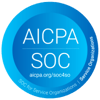Point-of-sale (POS) financing is a specialized credit product that allows merchants to offer financing options to consumers easily and reliably. This partnership mitigates payment risk for the merchant, enhances purchasing power for consumers, and opens up new opportunities to serve underserved consumer segments who may not qualify for traditional financing. Your relationship with merchants is crucial to managing risk effectively. A reliable and trustworthy merchant can help you safely extend credit to these new consumer segments, ensuring a secure and beneficial financing ecosystem for all parties involved.
Three Reasons PLV Matters in POS Financing
Professional License Verification (PLV) manages the risk of onboarding, contracting, and maintaining long-term relationships with qualified professionals. In trades where competence and trust are critical, such as construction and real estate, third-party verification is essential. Here are three important factors that PLV brings to POS financing:
-
1) Identifying Quality Merchants: A professional license is an official authorization issued by a governing body, such as a state or city licensing board, that permits individuals or businesses to legally practice a specific profession. Verifying this license ensures that the holder has met the required education, training, and competency standards in their field. This means that a merchant whose license is current and active, has not expired or been revoked, and is in good standing, is qualified and trustworthy. Financing a project with a business that has a problematic history is the last thing you want to risk. PLV can ensure filter out merchants like the ones below.

-
2) Ensuring Compliance: Not all licensed merchants may be in good standing. According to the California State Licensing Board, 46,416 out of 285,205 total contractors have inactive licenses. This means that the risk profile of your merchants is dynamic. A merchant in good standing today may have a different status tomorrow, potentially resulting in subpar work or work not being covered by insurance. PLV keeps compliance front and center, ensuring that all work is done by licensed professionals.

-
3) Protecting Consumers: Working with licensed service providers, such as contractors, is the best way to ensure consumer protection if something goes wrong. Some states, like Maryland, offer programs to protect consumers during a home build, but these programs are only available when consumers use licensed contractors.
-
Challenges in POS Financing with PLV
Manual PLV processes are inherently slow and complex, presenting significant challenges:
-
1) Time-Consuming: Manual verification can take days, as it often requires coordinating data with different licensing boards across various regions. Every state has different licensing boards and types of licenses, making the process even more cumbersome. This complexity makes scaling up nearly impossible.
-
2) Data Freshness: Relying on third-party databases that are updated only once or twice a year means working with outdated information. Real-time data access is crucial to ensure that a license hasn't expired or been revoked. Regular monitoring is essential to maintain compliance and accuracy.
-
3) Merchant Adoption: If the verification program is cumbersome or confusing, service providers, like contractors, are less likely to sign up. This hinders scalability, as the manual process is not only slow but also difficult to manage as the number of merchants increases. An automated solution is needed to streamline the process and ensure broader adoption.
How PLV Automation Helps with POS Financing
An automated PLV platform removes the challenges associated with license verification:
- Onboarding: Platforms like Mesh can reduce the onboarding and initial verification process to as little as 90 seconds. Accessing data directly from the source in real-time ensures the most accurate results.
- Ongoing Monitoring: Automated systems provide behind-the-scenes monitoring, alerting you when a license status changes, ensuring compliance remains front and center.
If you’re looking to upgrade your existing PLV program with automation or want to learn more about integrating license verification into your business, let’s talk. Our verification experts are ready to help you understand how automated PLV can strengthen your business and streamline your verification processes.

